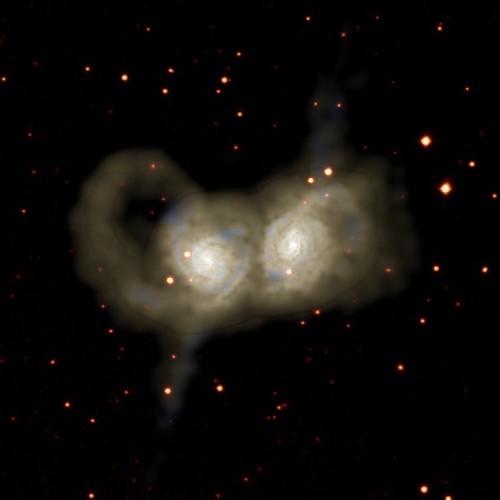OpenGadget3
Responsible Partners: INAF, LMU

OpenGadget3 is a collisionless N-Body/Lagrangian cosmological code that solves the Vlasov-Poisson equations in a cosmological expanding framework. It uses the smoothed particle hydrodynamics (SPH) computational method to describe the motion of fluids in addition to the gravitational forces.
The gravitational problem is solved numerically by coupling a Particle-Mesh algorithm for the average field and a tree-based Barnes&Hut algorithm for the interaction with the close neighborhood.
The code allows running simulations in a full cosmological context, i.e. accounting for an expanding background and the presence of matter, both “dark” and baryonic (the ordinary matter), and dark energy. Although the full cosmological context is often the default choice, having a non-expanding background and a setup with only dark or baryonic matter is equally possible.
In addition to the gravitational problem, it also simulates the evolution of the physical properties of thebaryonic matter subject to hydrodynamics and other physical effects such as radiative cooling, star formation, energy feedback, radiative transfer, magnetic fields and others that we collectively refer to as “extra physics”. The two most important algorithms in the code are the computation of the gravitational and hydrodynamical forces. More details are available in §2 of Deliverable 1.2 (see deliverable section).
The public repository for the publication of OpenGadget3 is hosted at the LRZ
https://gitlab.lrz.de/MAGNETICUM/Hydro-OpenGadget3